Subscribe to Rosanne’s Channel and receive notice of each new video!
When the folks hosting the conference announced their theme as “Screen Narratives: Chaos and Order” the word ‘chaos’ immediately brought to mind writers rooms. I offered a quick history of writers rooms (the presentations are only 20 minutes long) and then quoted several current showrunners on how they compose their rooms and how they run them.
Transcript
But one-hour dramas did not involve writer’s rooms in the beginning and I find that very fascinating because we rely on them now, but they did not in fact — they literally had writer pools and if you were running a show — so you were the creator of the show — you would walk down the hallway to the pool, of course, that’s the typing pool, and it was a bunch of guys not too many women involved at that time and you would say I need an episode of Columbo. Who’s free this week and that person would have to come up with an episode of Columbo. The NBC Mystery Movie was a perfect example of that because every Sunday there was a different one of these shows. They weren’t a weekly show and so you had some time to prepare it. So you’d walk down the street and say I don’t know which of these shows would we need this next week and that’s — so writer’s rooms took freelance ideas and you didn’t sit in the room and break the story together and that has been something that’s evolved over time I think is interesting. In this writer’s pool at Universal, which contributed to that show, were all these men who became the show runners of the second golden age of television and they all are men whose shows have run on television incessantly.
For more information on the Screenwriting Research Network, visit
* A portion of each sale from Amazon.com directly supports our blogs
** Many of these books may be available from your local library. Check it out!
Podcast: Play in new window | Download
Subscribe: RSS
![06 The Universal Studios Writers Pool from How The Chaos Of Collaboration in the Writers Room Created Golden Age Television [Video]](https://rosannewelch.com/wp-content/uploads/2021/03/srn-porto-06.jpg)

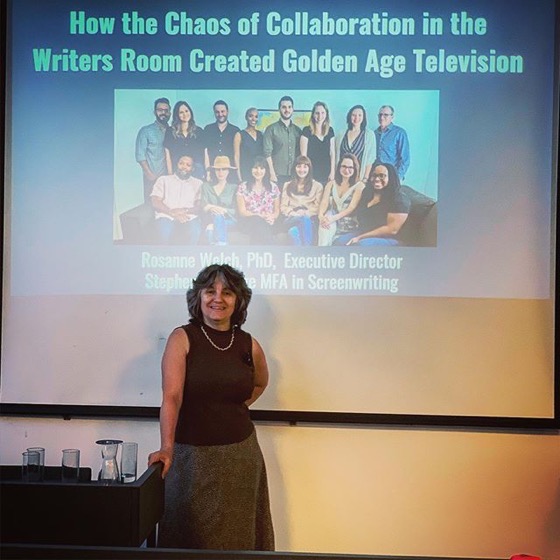
![Dr. Rosanne Welch Presents “Female Creatives & A Star Is Born” [Video]](https://rosannewelch.com/wp-content/uploads/2021/03/rmw-women-creatives-star-is-born-usc.jpg)

![05 The Monkees Writer’s Room from How The Chaos Of Collaboration in the Writers Room Created Golden Age Television [Video]](https://rosannewelch.com/wp-content/uploads/2021/03/srn-porto-05.jpg)
![Dr. Rosanne Welch Presents “When Men Forget Women: The Many Ways Male Screenwriters Fail to Mention their Female Colleagues in Oral Histories” at SCMS 2021 [Video]](https://rosannewelch.com/wp-content/uploads/2021/03/scms-vidoe-title-card.jpg)
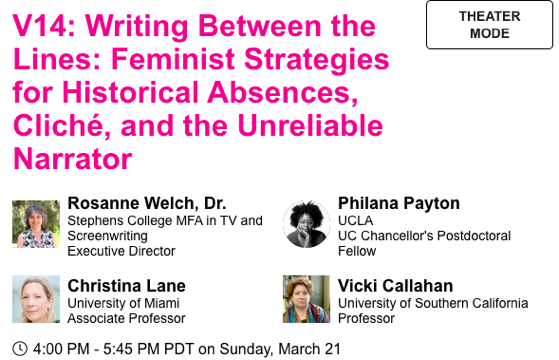
![04 The Comedy Writer’s Room from How The Chaos Of Collaboration in the Writers Room Created Golden Age Television [Video]](https://rosannewelch.com/wp-content/uploads/2021/03/srn-porto-04.jpg)
![Watch this presentation on “When Women Wrote Hollywood” for the Empire State Center for the Book [Video] (1 hour)](https://rosannewelch.com/wp-content/uploads/2021/02/EmpireStateCenterforBookLogo-1.png)
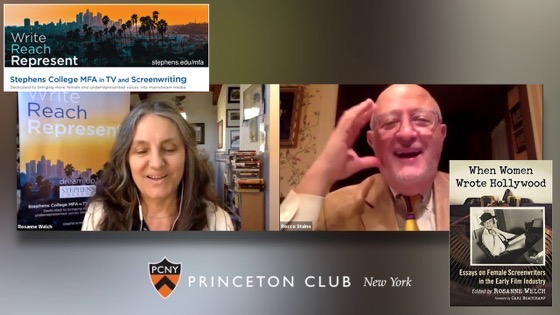


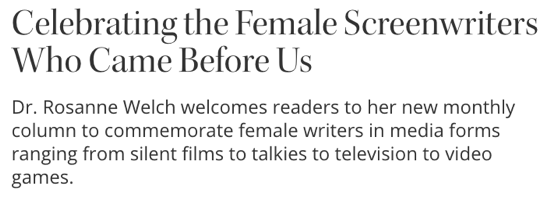
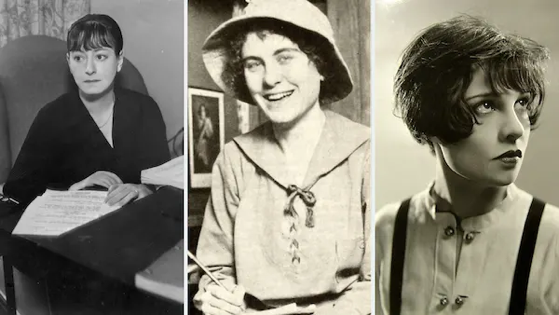



![03 Managed Chaos from How The Chaos Of Collaboration in the Writers Room Created Golden Age Television [Video]](https://rosannewelch.com/wp-content/uploads/2021/03/srn-porto-03.jpg)
![02 Words Matter. Writers Matter. Women Writers Matter from How The Chaos Of Collaboration in the Writers Room Created Golden Age Television [Video]](https://rosannewelch.com/wp-content/uploads/2021/03/srn-porto-02.jpg)